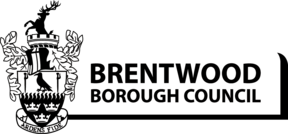Brentwood Borough Council has responded to the Government’s Local Government Reorganisation by backing a proposal for five unitary councils, which could see Brentwood become part of a new authority with Chelmsford City Council and Maldon District Council. The proposal will be debated at an Extraordinary Council Meeting on Monday 15 September.
The debate on Local Government Reorganisation follows the Government’s Devolution White Paper, in which they set out to replace the current ‘two-tier’ system of local government with ‘single-tier’ unitary authorities.
The Government invited authorities to develop plans for how all-purpose unitary councils could provide essential public services more efficiently across the county.
We responded to this request with interim proposals earlier this year, and we have worked closely and collaboratively with councils across Greater Essex to achieve this.
Currently, there are four formal business cases being worked on across Greater Essex, which propose:
- Five unitary councils, including Brentwood borough being part of an authority along with Chelmsford and Maldon, is our preferred approach.
- Three unitary councils where Brentwood borough would be part of an authority along with Chelmsford, Maldon, Harlow and Epping.
- A four-unitary council, proposed by Rochford District Council, where Brentwood would join Rochford, Maldon and Chelmsford.
- A four-unitary council model where Brentwood would join Thurrock, Epping and Harlow.
The final plans are required to be submitted to the Ministry of Housing, Communities and Local Government by 26 September 2025. The Government is expected to consult on the proposals later in the year, with final decisions anticipated in 2026.
The Leader of Brentwood Borough Council, Councillor Barry Aspinell, said: “We have been collaborating with councils across Essex to find the best way forward for local government. My main focus has always been clear: to ensure Brentwood residents continue to receive the quality services they expect, from a council that listens and remains closely connected to the community, and to whom they are accountable.
“That’s why I believe the five-unitary model is the best option for us. Fewer unitary authorities would be too large and too detached from local communities. Smaller councils mean stronger local voices, better connections with our towns and villages, and services that are both reliable and financially sustainable.
“This approach has strong support from the overwhelming majority of other Essex councils and local MPs, and we’re confident it gives Brentwood the best chance to safeguard what matters most to our community.
“I welcome the debate, and members will have the opportunity to put forward alternative views to endorse either the three-unitary model or either of the four-unitary models, should they so wish.”
ENDS
Notes to editors
You can see the agenda and reports going to Extraordinary Council here
